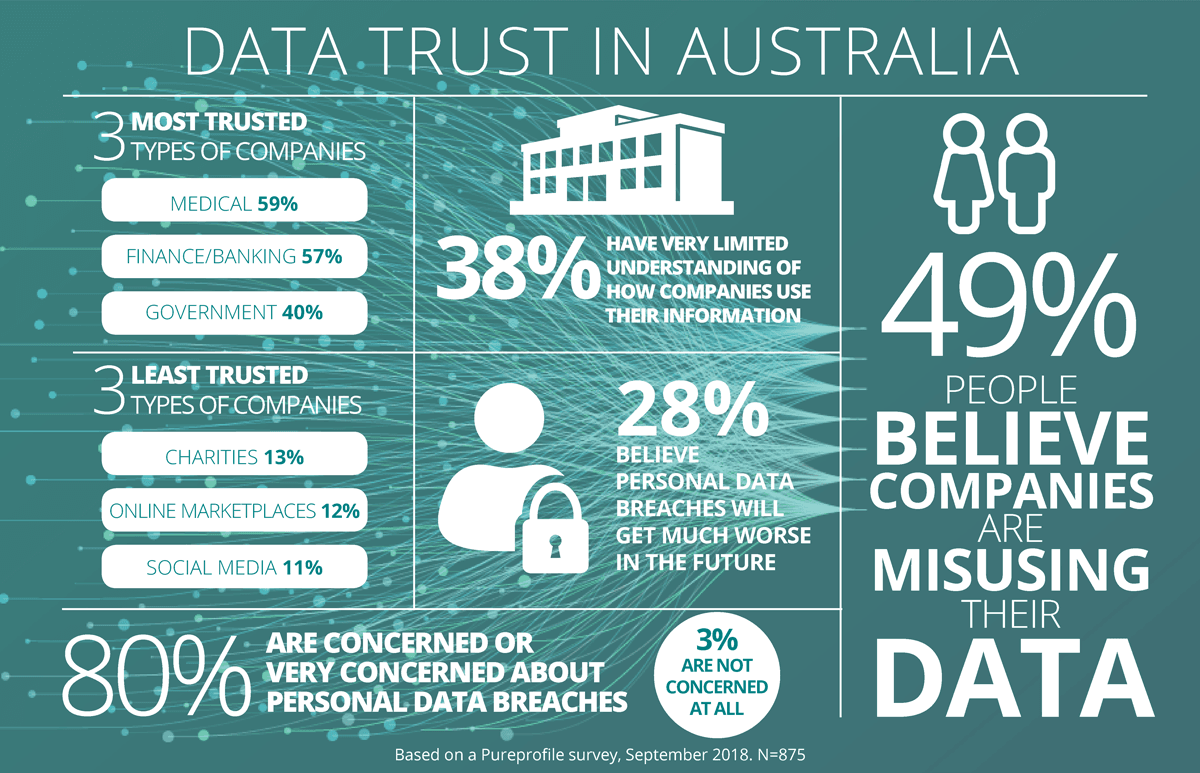When the Facebook-Cambridge Analytica scandal was first made public in 2018, Facebook’s market value dropped by 7% (that’s US$36 billion). The scandal, which centred around the illegal harvesting of 87 million Facebook profiles, represented the first time in history that technology giants were being called to task for the non-consensual monetisation of personal data for the purposes of digital advertising.
In the wake of this massive breach of consumer trust, 26% of Americans had deleted the Facebook app on their phone, and 54% had adjusted their privacy settings, according to a study conducted at the end of last year.
This global shift in policy is indicative of recent Pureprofile research which found that consumer trust around data privacy is at critical levels:
In the last year, the consumer privacy landscape has seen a massive shift – in Europe with the GDPR, in the US with the CCP, and most recently in Australia with the ACCC digital platforms inquiry.
This is a crucial time for brands to take significant strides towards providing full transparency around the way they collect, store and use consumer data.
The handling of personal data is a top concern for consumers, and one of the main reasons behind consumer distrust, according to the 2019 Edelman Trust Barometer. The report found that when consumers trust a brand:
- 58% will pay more for this brand’s products or services
- 49% will happily share their personal data with this brand
- 57% will advocate for this brand (even when they have not been asked for advice)
- 55% will defend this brand if they hear someone criticising it
The evidence is clear – brand trust is a massive driver of positive business outcomes and it is what consumers are demanding.
The most effective way to establish trust is to facilitate a two-way conversation between brand and customer. The only way to do this is via declared data. Declared data is a type of first-party data that involves customers willingly and explicitly volunteering their information. It is captured by asking real people for their honest opinions, while providing a legitimate value exchange.
The insights derived from the collection of declared data is then used to provide more meaningful and personalised customer experiences. In exchange for providing their opinions, you can choose to reward your customers with free content, access to exclusive promotions, or an experience completely tailored to their unique needs.
With this infrastructure in place, marketers can show transparency around the way data is used to benefit customers and deliver a better experience. By informing consumers what their data is used for, and why, a relationship can then be created built on trust.
Establishing solid consumer trust is paramount. It boosts loyalty, creates brand advocates, and allows you to find the customers who are willing to provide you the insights needed to stay ahead of the competition.
Want to implement a declared data strategy to create centralised and actionable customer insights? Chat to one of our expert consultants today.




